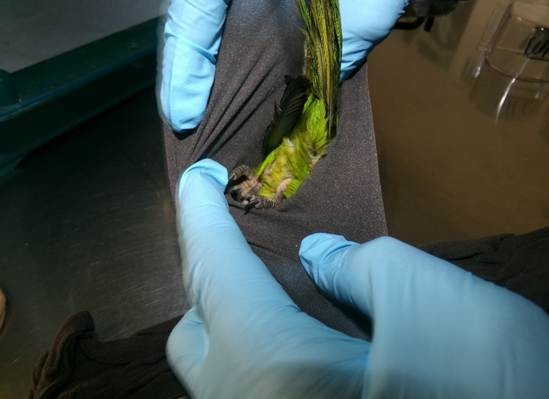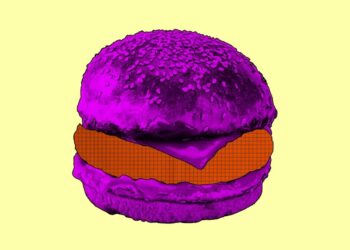When Customs and Border Protection Officers asked Jesse Agus Martinez about the suspicious bulge in his pants, he claimed that the protrusion was natural — using a Spanish word for a male appendage. But on further inspection, officers say they found two heavily sedated parakeets in his underwear.
Martinez, a 35-year-old U.S. citizen residing in Tijuana, Mexico, was indicted Friday after authorities say he attempted to smuggle a protected species — orange-fronted parakeets — into the United States last month without following proper quarantine and clearance procedures.
Border agents found the two juvenile birds “breathing but heavily sedated” inside brown sacks that were then tucked into Martinez’s crotch, the U.S. attorney’s office for the Southern District of California said. Martinez had repeatedly claimed that the bulge was his “pirrin,” a Spanish word for penis.
The birds were confirmed to be in “stable condition” after receiving care from border veterinarians and were transferred to the Department of Agriculture for quarantine.
A photo shared by the U.S. attorney’s office shows one of the birds appearing healthy and upright in a cage after the sedative wore off.
Customs and Border Protection records suggested that Martinez had smuggled birds into the United States before, the U.S. attorney’s office for the Southern District of California said. He has been charged with importation contrary to law and, if convicted, faces up to 20 years in prison as well as fines of up to $250,000.
Orange-fronted parakeets, also known as Eupsittula canicularis, are considered a vulnerable species by the International Union for Conservation of Nature, which means they are at risk of becoming endangered.
The birds have been a protected species since 2005, when an international agreement regulating the sale of wild animals determined that the bird trade was threatening the species’ survival. Mexico banned the trapping and export of its native parrots in 2008.
The parakeets, also known as orange-fronted conures or half-moon conures, are native to tropical forests in Central America and are known for a vibrant orange band of feathers that lines their beaks. They are typically green, with deep blue feathers on their crown, and they usually grow to about 9 and a half inches in length.
About 570,000 orange-fronted parakeets were captured and trafficked between 1995 and 2019, according to the World Parrot Trust, which says the species has been heavily impacted by the bird trade.
In April, Customs and Border Protection officers arrested a 54-year-old man from Mexico after he allegedly attempted to smuggle 12 orange-fronted parakeets by wrapping them in nylon stockings and stuffing them into his boots. At least three of the birds died, the U.S. Fish and Wildlife Service said. Photos officials shared of the birds after they were seized showed them appearing bedraggled with missing feathers as they huddled together in the corner of a cage.
One of the birds suffered a broken neck during the April smuggling attempt, the U.S. attorney’s office for the Southern District of California said.
The post Man accused of smuggling protected parakeets in his underwear
appeared first on Washington Post.




